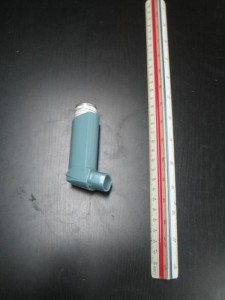Arrythmias and Heart Attacks
When a person gets a heart attack, the most common explanation is a pre-existing heart condition. Ischemic heart disease – or a heart problem where the vessels that supply the heart with blood become blocked with fatty deposits (plaques) – is the leading cause of death and cardiac arrests in the world. However, there are different conditions that can also cause a heart attack. Arrhythmias are commonly detected once the patient has been hospitalized, and is one of the precursors to an impending heart attack. Learn more about this at our Basic Life Support Course.
What is an arrythmia?
Arrhythmias are, simply put, irregular heart rhythms. But how do you get them? The heart is a muscle that functions similarly to the rest of the muscles in our body – by electrical signals conducted from the brain. However, these electrical impulses travel a little differently in the heart. There are a series of nodes that the impulses travel through, making certain parts of the heart contract and relax. When there is an imbalance of electrolytes in the body, impulses travel either very slowly, very fast, or not at all. This irregularity can cause the heart to stop.
Trained in CPR

There are 12 million people in the USA that get CPR training from the AHA and its affiliate training providers. Our providers use the latest guidelines from the AHA to built their CPR curricula, in both basic and advanced programs. You can enroll in eight different programs, five of which are regular programs and three re-certification programs.
- Heartsaver CPR/AED – Basic Life Support – 4 hrs., for the general public
- Heartsaver CPR/AED C – Basic Life Support – 4.5 hrs., for HCPs
- Basic Life Support for HCPs – Basic Life Support – 4.5 hrs., for HCPs
- Advanced Cardiac Life Support (ACLS) – Advanced Life Support – 16 hrs., for HCPs
- Pediatric Advanced Life Support (PALS) – Advanced Life Support – 14 hrs., for HCPs
You will notice that our programs are categorized under Basic and Advanced Life Support. Basic courses teach one and two-person rescue skills and first aid, inclusive of defibrillation training. Advanced courses are more complicated, teaching students how to medically manage cardiac arrest. Since medical management can only be done by allied health professionals, both our ALS courses are only for health care providers with training in Basic Life Support for HCPs.
Certificates
If you finish your training program with complete attendance and a passing grade on the final exam, you will be given a CPR training certificate for the program. It is valid for two years and can be renewed through re-certification classes. Re-certification is available for three of our courses: BLS for HCPs, ACLS, and PALS.
Enrollment
Enrolling in our programs is quite easy. There is are different ways to enroll, and the most popular among our students is through the internet. You can either send an e-mail or sign up on our provider ‘s website using the online form. Telephone calls and enrollment in person are highly encouraged as well.
